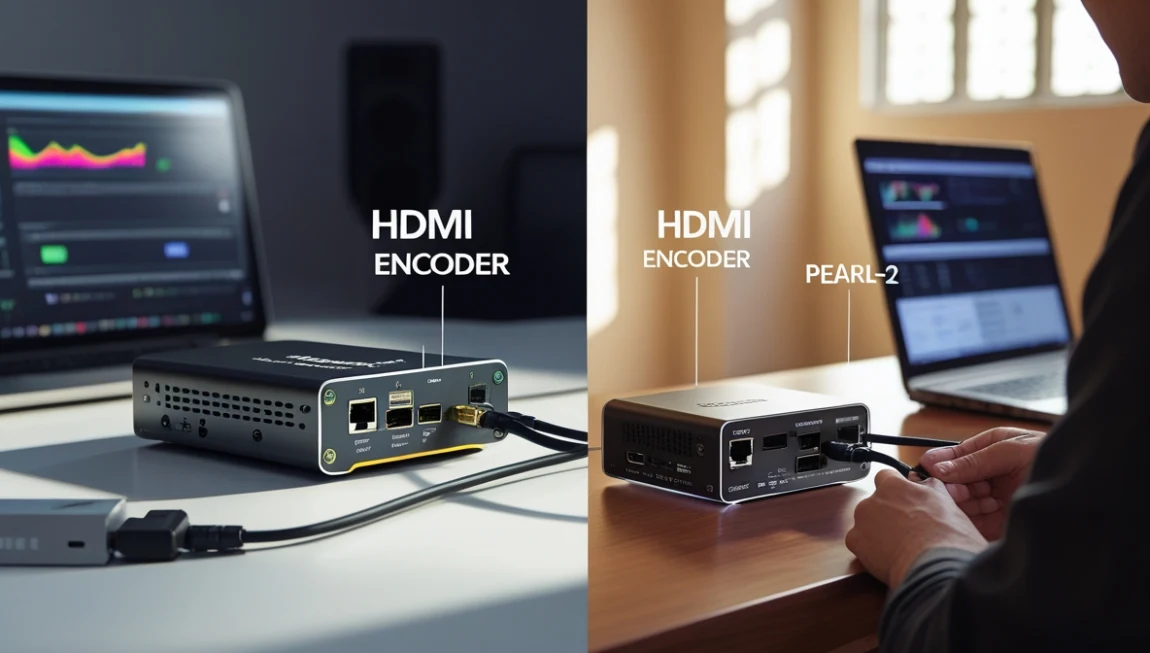Introduction to HDMI Encoders
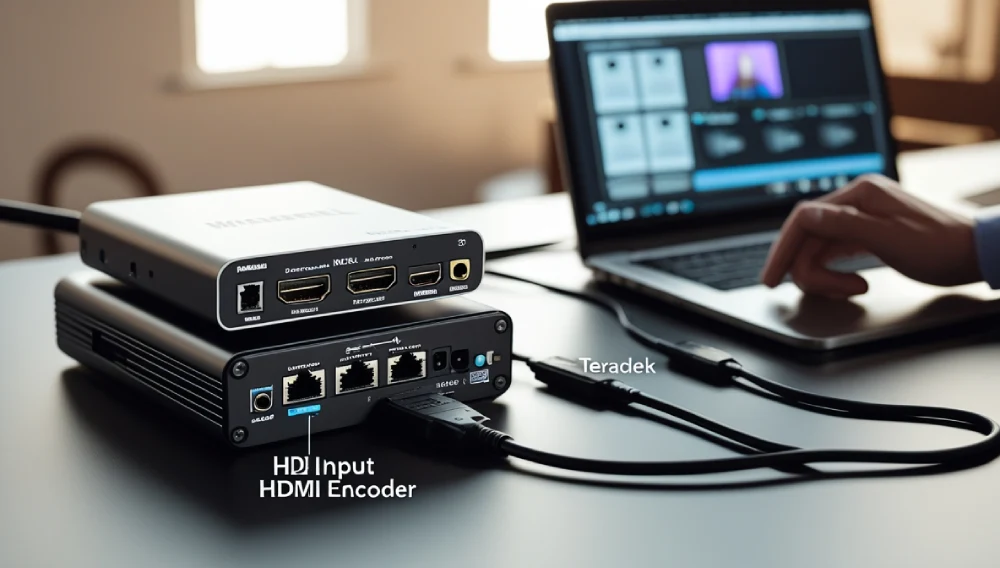
HDMI encoders are essential tools for converting raw HDMI video into digital formats for streaming, recording, or broadcasting. Whether you’re a:
- Live streamer
- Content creator
- Church AV technician
- Corporate event producer
- Security system installer
…an HDMI encoder can revolutionize your video workflow. This guide explains everything you need to know about choosing and using HDMI encoders in 2024.
What Is an HDMI Encoder?
An HDMI encoder is a hardware device that:
- Takes HDMI input from cameras, gaming consoles, or computers
- Compresses the video signal
- Converts it for streaming or recording
Key Features to Look For:
- Input resolution support (1080p, 4K, etc.)
- Compression formats (H.264, H.265/HEVC)
- Streaming protocols (RTMP, SRT, HLS)
- Latency performance
- Built-in recording capabilities
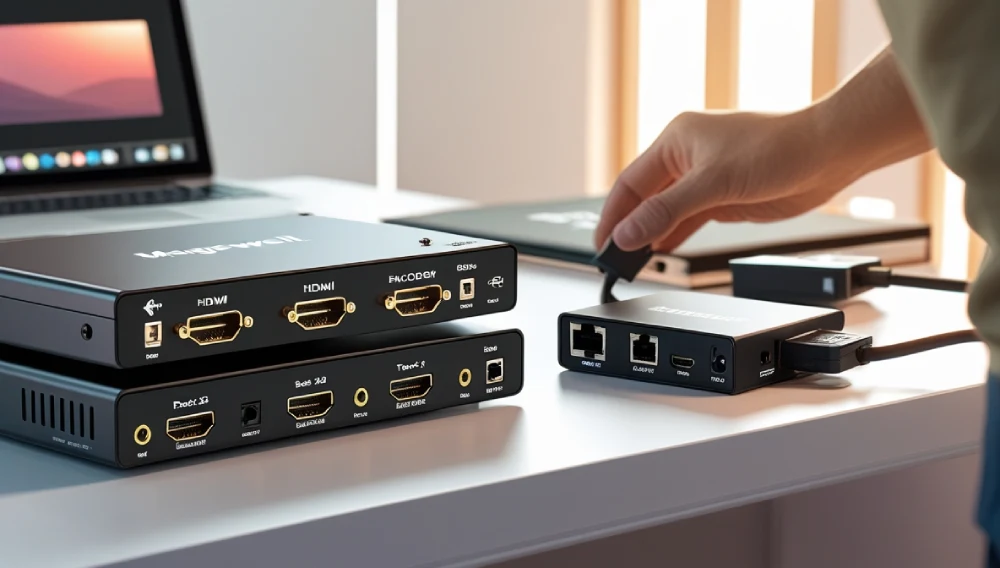
Why You Need an HDMI Encoder
Benefits Over Software Encoding:
✔ Lower CPU usage – Offloads processing from your computer
✔ More reliable – Dedicated hardware avoids software crashes
✔ Portable – Many models work standalone without a PC
✔ Professional quality – Better bitrate control and stability
Common Use Cases:
- Live event streaming (concerts, conferences)
- Game streaming to Twitch/YouTube
- Church and worship services
- Corporate webinars
- Surveillance system monitoring
HDMI Encoder vs. Capture Card: What’s the Difference?
| Feature | HDMI Encoder | Capture Card |
|---|---|---|
| Primary Use | Streaming/recording | Local recording |
| Compression | Built-in hardware encoding | Relies on computer CPU |
| Portability | Often standalone | Requires computer |
| Latency | Ultra-low (some models) | Slightly higher |
| Best For | Professional streaming | Gamers/streamers with powerful PCs |
Top 5 HDMI Encoders for 2025
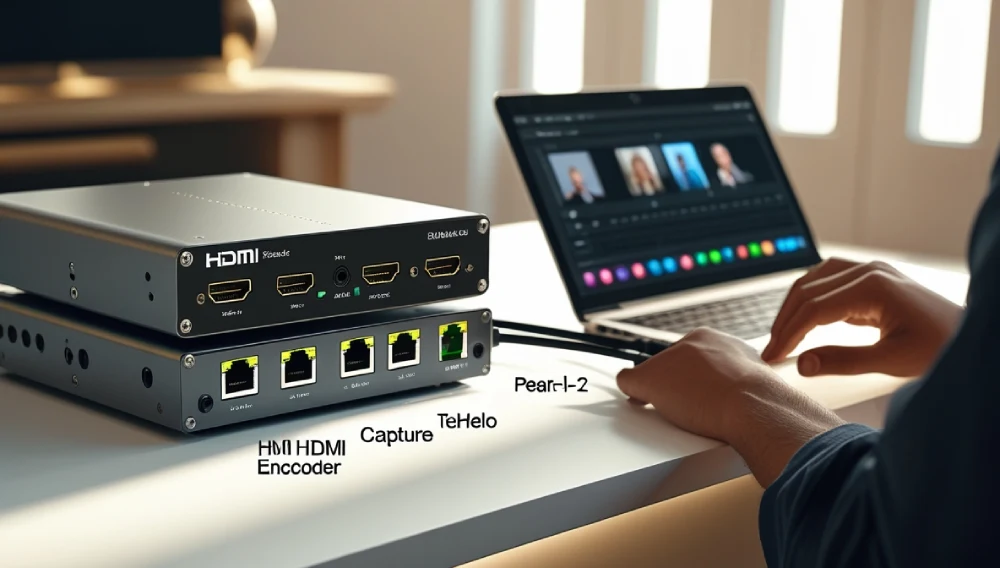
1. Magewell Pro Convert HDMI 4K Plus
✔ Pros:
- 4K60 HDR support
- Ultra-low latency (0.1s)
- No drivers needed
- Multiple output formats
✖ Cons:
- Premium price
- No built-in streaming software
Best for: Professional broadcasters and production houses
2. Blackmagic Design Web Presenter HD
✔ Pros:
- Excellent audio mixing
- Works seamlessly with OBS
- Clean HDMI loop-out
- Affordable for features
✖ Cons:
- Limited to 1080p
- Requires computer connection
Best for: Church streaming and content creators. Check out Teradek’s latest HDMI encoder models for professional streaming at their official website.
3. AJA HELO Plus
✔ Pros:
- Standalone operation
- Records while streaming
- Simple touchscreen interface
- Reliable performance
✖ Cons:
- No 4K support
- Higher price point
Best for: Event producers needing all-in-one solution
4. Teradek VidiU Go
✔ Pros:
- Portable with battery option
- Cellular streaming capable
- Cloud management
- Great for field use
✖ Cons:
- Limited to 1080p30
- Requires subscription for some features
Best for: Mobile journalists and live event crews
5. Pearl-2 from Epiphan
✔ Pros:
- Dual HDMI inputs
- Built-in switcher
- Excellent software integration
- Reliable for 24/7 operation
✖ Cons:
- Complex for beginners
- Expensive
Best for: Professional studios and education
HDMI Encoder Buying Guide
1. Determine Your Resolution Needs
- Basic streaming: 1080p30/60
- Professional production: 4K30/60
- Future-proofing: Look for HDR support
2. Consider Your Streaming Destinations
- Social media: RTMP support essential
- Enterprise: Look for SRT or HLS
- Private networks: Check for NDI compatibility
3. Evaluate Connection Options
- Wired: Most reliable (Ethernet)
- Wireless: Convenient but less stable
- Cellular: For remote locations (like VidiU Go)
4. Audio Requirements
- Basic: Embedded HDMI audio
- Advanced: XLR/3.5mm inputs
- Professional: Dante/AES67 support
5. Budget Considerations
- Entry-level: 200−200−500
- Mid-range: 500−500−1,500
- Professional: $1,500+
Setting Up Your HDMI Encoder
Basic Setup Steps:
- Connect HDMI source (camera, console, PC)
- Connect to network (Ethernet preferred)
- Configure streaming settings
- Connect to destination (YouTube, Twitch, etc.)
- Start streaming
Pro Tips for Better Results:
- Use wired Ethernet whenever possible
- Set appropriate bitrates (higher isn’t always better)
- Monitor stream health during broadcasts
- Keep firmware updated
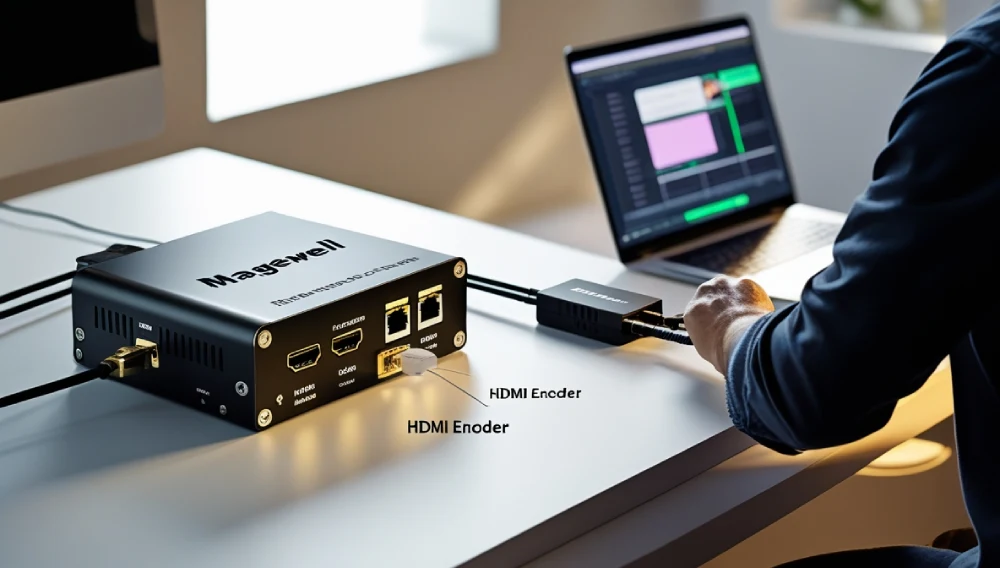
Personal Experience: Choosing the Right Encoder
When I first started streaming church services, we used a software encoder with a capture card. We constantly faced:
- CPU overloads
- Audio sync issues
- Dropped frames
Switching to the AJA HELO solved these problems immediately. The standalone operation meant we didn’t need to bring a computer, and the reliability improved our stream quality dramatically.
For our mobile productions, we added a Teradek VidiU Go – being able to stream from anywhere with cellular service has been revolutionary for covering outdoor events.
HDMI Encoder FAQs
Q: Do I need a powerful computer with an HDMI encoder?
A: No! Most encoders process video independently, saving your computer’s resources.
Q: Can I record while streaming?
A: Many models can, like the AJA HELO that records to USB while streaming.
Q: What’s the difference between H.264 and H.265?
A: H.265 offers better compression (smaller files at same quality) but requires more processing power.
Q: How important is latency for live streaming?
A: Crucial for interactive streams (gaming, Q&A). Look for <1s latency for best results.
Q: Can I use multiple cameras with one encoder?
A: Most encoders handle one input, but some (like Pearl-2) support switching between multiple sources.
Future of HDMI Encoders
Emerging trends to watch:
- AV1 encoding for even better compression
- 5G integration for mobile streaming
- AI-enhanced bitrate optimization
- Cloud-based management systems
Final Recommendations
For beginners: Start with the Blackmagic Web Presenter HD – great balance of price and features.
For professionals: The Magewell Pro Convert offers the best combination of quality and flexibility.
For mobile use: The Teradek VidiU Go is unmatched for portability.
